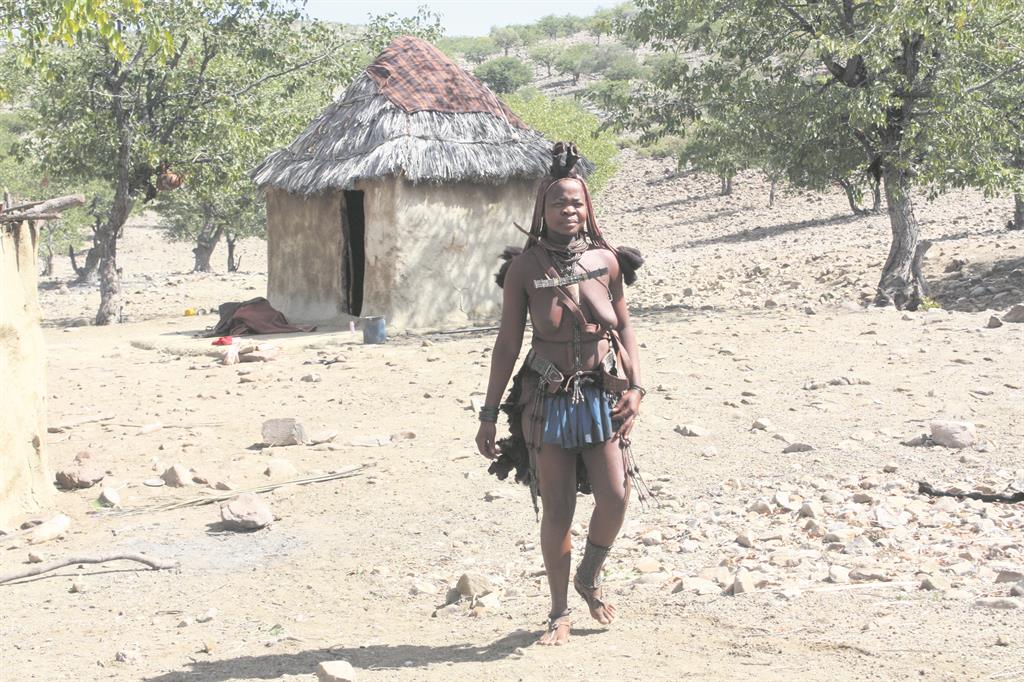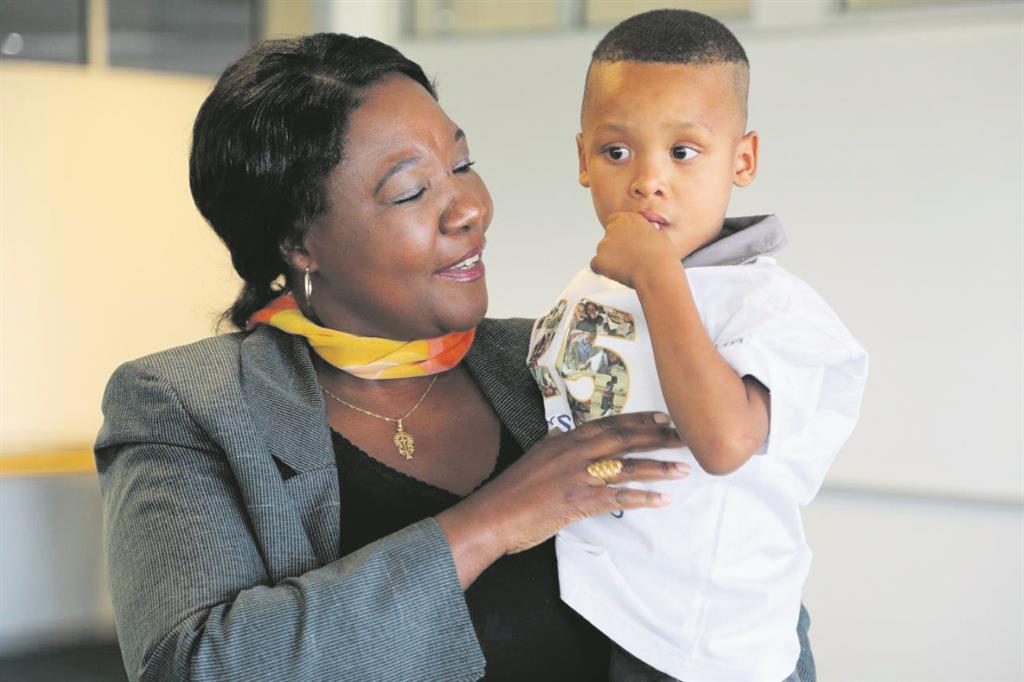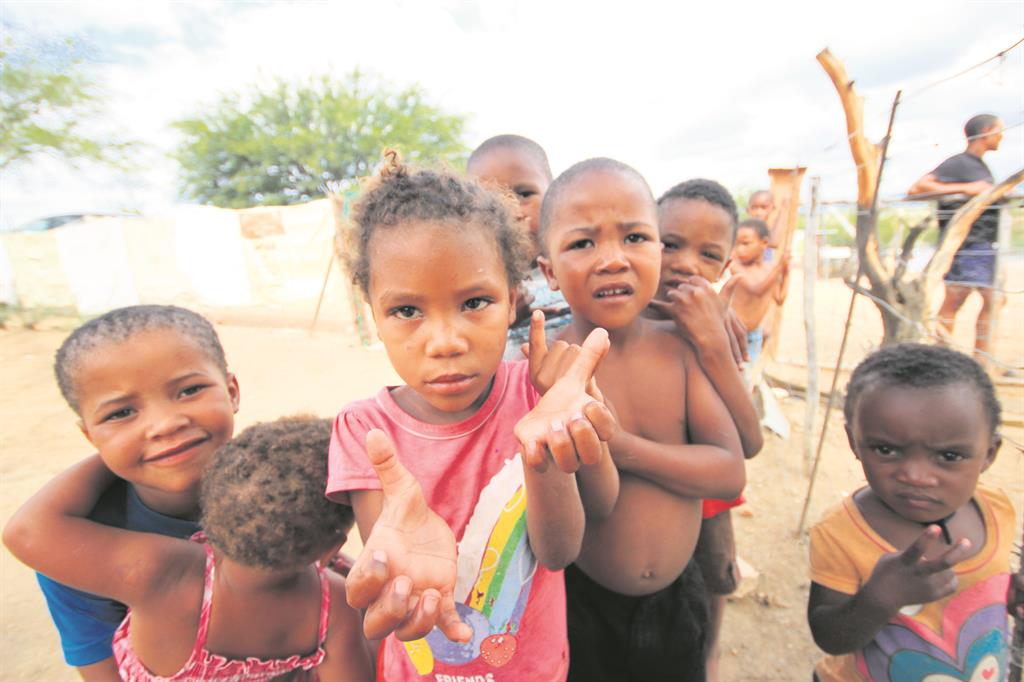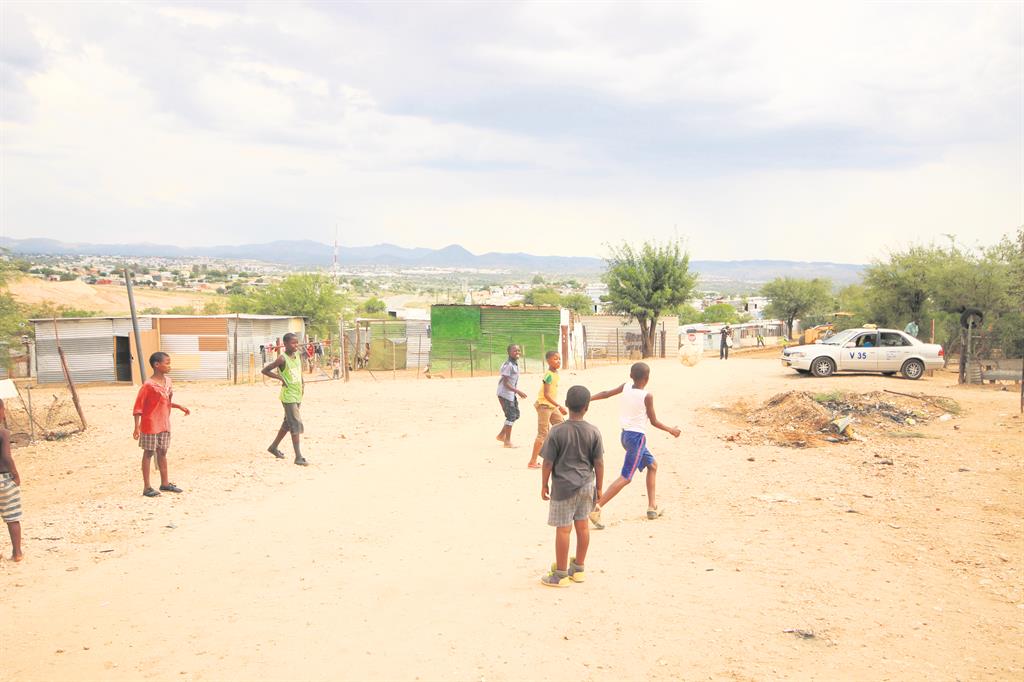Caring for Namibia’s children
Namibia is standing at the edge of a social revolution. It is a revolution so great and powerful that it can change the landscape of equality and prosperity for all Namibians forever. It is transformative and innovative and will leave a legacy. All it requires is strategic vision and a new focus on Namibia’s richest asset - her children.
Since independence in 1990, Namibia has changed in many ways. Democracy in governance has allowed for improved access to public services, previously reserved for only a few. New opportunities have emerged in the fields of economic development, education, health, protection and social welfare.
This is framed within the National Development Plans that outline the course of action for the growth of the nation. The 4th National Development Plan for 2012/13–2016/17 commits to an expansion of the provision of free, government run, early childhood development (ECD) services to the poorest communities across the country, a reform of its social grant system to gradually make child grants universal from 2016; and a commitment to combat gender-based violence.
Now, more than ever, financial and technical resources are required to implement these reforms, and institutionalise cross-sectoral and inter-governmental linkages to maximise development outcomes for the most vulnerable children.
Inequality
Namibia is a country that is still burdened by inequality. Poverty strikes hardest affecting 34% of all children, with one in three children stunted, 13% of primary school aged children out of school, an increasing dropout rate in secondary schools, and distressing levels of socially tolerated family violence and child
abuse.
With the changes in the economic and development landscape of Namibia, the notion of childhood has changed. New demands are made on families, communities, civil society and government to respond to services for the very young. HIV/Aids, abject poverty in rural areas, migration, single parent families and increased industrialisation that requires parents to actively participate in the workforce have necessitated unconventional responses to the development needs of young children when it comes to health, nutrition, social welfare, protection and education. The response to these demands has not always been easy.
International experience has shown that integrated interventions for children aged 0-6 years can be a highly effective way to break intergenerational cycles of poverty and violence, address social exclusion, and enhance school readiness. These early interventions include health care, protection and welfare, early stimulation and positive parenting, and pre-school education. Together they can mitigate the effects of lower household income, poorer educational attainment of caregivers, attitudes and practises that perpetuate violence and abuse, help break the cycle of inequities that dominate the lives of many children and families in middle-income countries, and promote socially transformative norm change. An intensified focus on the first thousand days of a child’s life can combine interventions that promote adequate nutrition, access to parenting support in child development, health, protection and recreation.
Pro-poor focus
With a pro-poor focus, we can reduce the number of children who are faced with multiple barriers to their optimal development, especially children from poor communities, those with disabilities and other special learning needs, but receiving no support, children living in residential care and children subject to abuse and neglect in their homes. We can reduce these numbers to zero. Access to quality, integrated ECD programmes will lay a strong foundation for nurturing, future learning, stimulation, socialisation, the provision of basic health and adequate nutrition, and play and recreation in a protective and caring environment.
The current environment for integrated ECD services in Namibia highlights the need for immediate action. Edu-carer Hortensia Lungameni, who heads an ECD centre in Omusati, believes that integrated ECD interventions have the potential to mitigate the factors that place children at risk of poor health and educational outcomes. However, amid poverty, parents are not always able to make financial commitments to prioritise these essential services required for a child’s formative years and often feel unable to pay, for example, N$50 a month for the enrolment of children in an ECD centre. Parents also do not always have the skills and ability to support the cognitive development of young children or identify health risks. The adverse results are visible.
Throughout Namibia, nearly
2 000 ECD learning facilities have been set up as initiatives of communities, civil society organisations, churches and individuals. Salaries and other running costs for these centres are therefore sourced from fees paid by parents, these fees are often meagre and not enough to purchase adequate learning and teaching materials, including play materials for children let alone pay the salaries of ECD teachers.
Subsidies
Current subsidies from government to over 500 ECD centres provide for allowances to caregivers and some support is also provided for renovation and materials. Despite these efforts, more needs to be done. Results from the 2012 survey of Early Childhood Development Centres by the Ministry of Gender Equality and Child Welfare, reveals that two-thirds of facilities in the country operate with an inadequate number of sanitation facilities, a situation which would contribute to poor health and physical outcomes for children.
Without formalisation and standardisation, many of them continue to be staffed by unqualified and inexperienced providers and fall short on providing appropriate learning materials, a directed curriculum or adequate infrastructure and facilities. Other challenges include failing to create an environment for the overall development of children, lack of meaningful parental and community involvement, little partnerships and co-ordination amongst and within stakeholders and limited access for children with disabilities and other vulnerable children.
However, ECD centres are not the only answer to promoting ECD. Integrated ECD requires a life cycle approach, with dedicated interventions for children aged 0-5. Early learning cannot not be ensured without early protection, timely identification of developmental delay and abuse in the home, and interventions ensuring adequate nutrition at
home.
Extreme poverty
Moreover, global evidence abounds on the access barriers to early learning centres faced by some of the most marginalised children in society, including children under 2 years of age, children growing up in abusive households, children faced with multiple deprivations including extreme poverty and those living with a disability, who may require different, non-centre-based ECD interventions. Integrated ECD prescribes multi-sectoral solutions. It is therefore imperative that multifaceted IECD interventions are promoted to ensure that the most vulnerable and excluded benefit. This includes family support through home visitation and parenting support programmes by community-based welfare and health workers, which have globally proven to be successful in providing the kind of tailored family-focused support that help the youngest and most vulnerable children thrive, be protected and develop in their early
years.
Within these challenges, the opportunities still remain. Within 25 years of independence, Namibia has ratified the Convention on the Rights of the Child and has committed to the Education for All Declaration and the Dakar Framework for Action which all underscores the imperative role of integrated ECD. This recognises that investments in quality integrated ECD pays significant returns to the child. Families, communities and the government are taking a serious interest in enhancing the quality of
ECD.
Rural communities
The Fourth National Development Plan further recommends the transition of ECD from the Ministry of Gender Equality and Child Welfare to the Ministry of Education and the construction and maintenance of integrated ECD centres, especially to benefit communities in deprived or rural communities. Among the benefits of the transition will be the smooth progression from ECD, pre-primary and lower primary through to secondary education, standardisation of the curriculum across the board and better monitoring and evaluation of service delivery.
Apart from a focus on education, the imperative of health and protection of the very young remain inseparable in ensuring multi-sectoral, integrated ECD It will therefore be imperative to lay down the education, welfare, protection and health & nutrition functions that, if well-co-ordinated, maximise early development of the most vulnerable.
Through the Ministries of Education, Gender Equality and Child Welfare, and Health and Social Services, UNICEF supports government to ensure a multi-sectoral response to quality ECD services. This shift would strengthen the implementation of monitoring and evaluation of quality pro-poor integrated ECD programmes and professionalise ECD services.
This will include community and family based interventions to prevent and respond to abuse and promote healthy development.
During this process some ECD centres will also benefit from government subsidies to meet standard requirements while model community-based integrated ECD facilities, providing quality inclusive services to all children, especially with disabilities and other special needs will also be established.
Happy children
As Namibia prepares to roll out these services, consider the immense value that this investment in young children will bring. We will see happy, healthy children, safe communities, protective households and a country that will continue to grow from strength to strength.
Consider the investment as a second Independence struggle; this time for children. One battle has already been won, now we need a social revolution for our children from an early
age.
Every child deserves the best possible start in life and it starts with each one of us.
There is still a long road ahead and much that needs to be done. The sooner we accelerate our efforts, the sooner we will yield the results. Let this social revolution towards a Namibia fit for children be on the rise!
*Micaela Marques De Sousa is the United Nations Children’s Fund (UNICEF) Country Representative for Namibia
WINDHOEK MICAELA MARQUES DE SOUSA







Comments
Namibian Sun
No comments have been left on this article